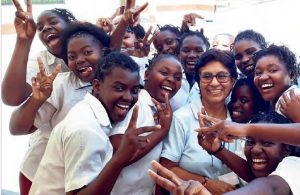The Archbishop of Colombo, Albert Cardinal Malcolm Ranjith, condemned the deadly attacks on churches and hotels on Easter Sunday (April 21) in a series of bomb blasts that claimed at least 359 lives and leaving more than 500 people injured. At least 45 children were among the victims, according to UNICEF. It was the worst violence to hit the island since its devastating civil war ended a decade ago in 2009.
Cardinal Ranjit urged Sri Lankans not to “take the law into their own hands” after a series of explosions targeting churches and people hotels. “I condemn, to the utmost of my capacity, this act which has caused so much death and suffering,” he said.
One of the explosions was at St. Anthony’s Shrine, a Catholic church in Kochcikade, Colombo. A second blast hit St Sebastian’s Church during Easter Mass, killing dozens. Soon after the first two church blasts, the Zion church in the east coast town of Batticaloa had been hit, along with three high-end hotels in the capital – the Cinnamon Grand, the Shangri-La and the Kingsbury.
Speaking to tens of thousands of people in St. Peter’s Square on Easter Monday, Pope Francis said he was close to the Catholics of Sri Lanka and was praying for all of the many dead and wounded. “I ask everyone not to hesitate to offer this dear nation all the help necessary. I hope that everyone condemns these terrorist acts, inhuman acts, never justifiable.”
World Council of Churches (WCC) general secretary Rev. Dr Olav Fykse Tveit said, “we strongly condemn these attacks on people gathered at worship and offer our heartfelt prayers for the victims and condolences to all those who have lost loved ones in these appalling acts of violence.”
Tveit said also, “The targeting of churches in this manner is an attack on religious peace and harmony and on the social and cultural fabric of the nation, which has long struggled to uphold principles of religious harmony and diversity. Such acts of violence undermine the sanctity of life and constitute a sacrilege in many senses. Even as we cry out against this sacrilege, we resolutely affirm that violence must not beget violence. In the spirit of the love of Christ, on this Easter Day, we hold fast to the belief that violence, hatred and death will not have the last word.”
Tveit concluded: “A fitting tribute to the memories of those who lost their lives in sacred spaces of peace and refuge is for us all to live out the difficult task of demonstrating that the power of peace and love are far greater than the power of violence.
Sri Lanka is home to about 1.5 million Christians, according to the 2012 census, the vast majority of them Roman Catholic. Hindus and Muslims make up 12.6% and 9.7% of the population respectively. Theravada Buddhism is Sri Lanka’s biggest religion, making up about 70.2% of the population, according to the most recent census. It is the religion of Sri Lanka’s Sinhalese majority.






